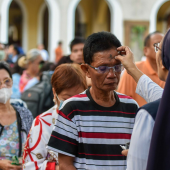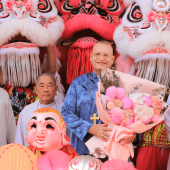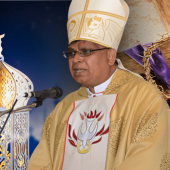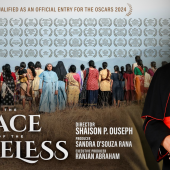Indonesian Bishop Postponing Ash Wednesday Due to National Election Day
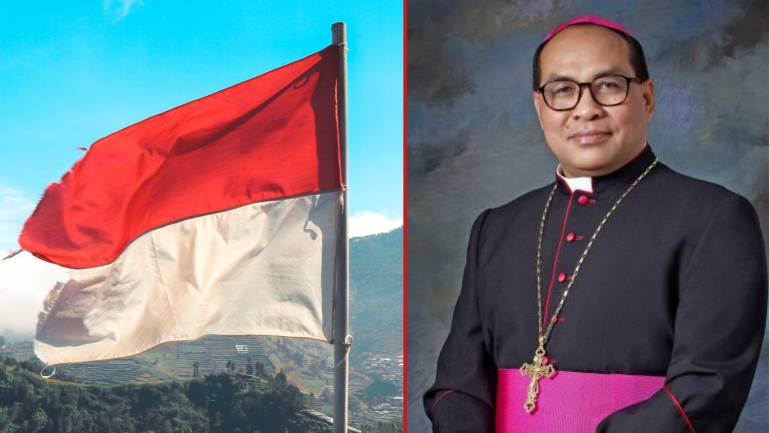
Ruteng, Indonesia – The Indonesian Bishop of Ruteng, Siprianus Hormat, postponed the Ash Wednesday solemnity from February 14, 2024, to Thursday, February 15, 2024, due to National Election Day, which will take place on the same day.
“I stipulate that the celebration of Ash Wednesday will be held on Thursday (February 15) from morning to evening. Meanwhile, receiving ashes at the sub-stations can also be done on Sunday, February 19, 2024," said Bishop Hormat in his Pastoral Letter dated January 16, 2024.
In his pastoral letter, Bishop Hormat also asked the people “to participate actively, appropriately, and with conscience” during the election by exercising the right to vote freely and responsibly in choosing leaders who are committed to the common welfare.
Furthermore, he provided guidelines to the people experiencing an uneasy situation as a nation, which faces four major challenges: poverty (economic instability), corruption, global warming/climate change, and the increase in productive population. These challenges require the strengthening of human resources to be effectively addressed. With these challenges, therefore, the country is in need of qualified leadership capacity.
He further invites the community to wisely choose the right leader. “I invite all of us to find and determine the right person for our national leaders in the upcoming elections," he urged. He presented some criteria derived from the Church's Social Teachings of the Church and the state philosophy of Pancasila, which hopefully enlighten and inspire the people to make correct and wise political choices.
First, he said to look for leaders who have the ability and integrity to lead this nation towards prosperity, justice and solidarity for all people toward common welfare. Second, Bishop Hormat emphasized the Social Teaching of the Church which stressed the rights and dignity of the human person. Thus, choosing leaders who care and have compassion for their fellow citizens, especially the weak and vulnerable, is fundamental.
Third, the practices of abuse of power, authoritarianism, manipulation and violence were part of the past political history of the country. Democracy means political dynamics "from the people by the people and for the people," which contains elements of "participation and responsibility". Hence, the bishop encourages the people to select “the leaders who are truly born from a true and correct democratic process and who are committed to upholding people's sovereignty, ethics and democracy.”
Fourth, in his letter, he said that a nation is first of all a community of life and values, which forms a spiritual and moral community. Consequently, politics must guarantee that citizens have faith and worship according to their respective beliefs and find God as the source of their true strength and happiness. Thus, the bishop advised the people to pursue leaders who are trustworthy, worshipful, religious, tolerant and inclusive.
Lastly, the Ruteng Bishop speaks about unity in diversity, as Indonesia is a unique country with a diversity of tribes, customs, languages, cultures and religions.
As to end his letter, bishop, I invite people, especially the youth, as first-time voters, to vote with a clear heart. Choose a "good and capable" leader who is not susceptible to political gimmicks that anesthetize and deceive, advised the bishop. He also reminds people “not to forget the history and pay careful and objective attention to each candidate's track record.”
He wishes that the election will go peacefully, and as it coincides with Valentine's Day, the bishop prays that love may hold and embrace all leaders who partake in the election and that love will always permeate all the political life of the country. Omnia in Caritate. Do all your work in love.- Emiliana Saptaningsih
Radio Veritas Asia (RVA), a media platform of the Catholic Church, aims to share Christ. RVA started in 1969 as a continental Catholic radio station to serve Asian countries in their respective local language, thus earning the tag “the Voice of Asian Christianity.” Responding to the emerging context, RVA embraced media platforms to connect with the global Asian audience via its 21 language websites and various social media platforms.










